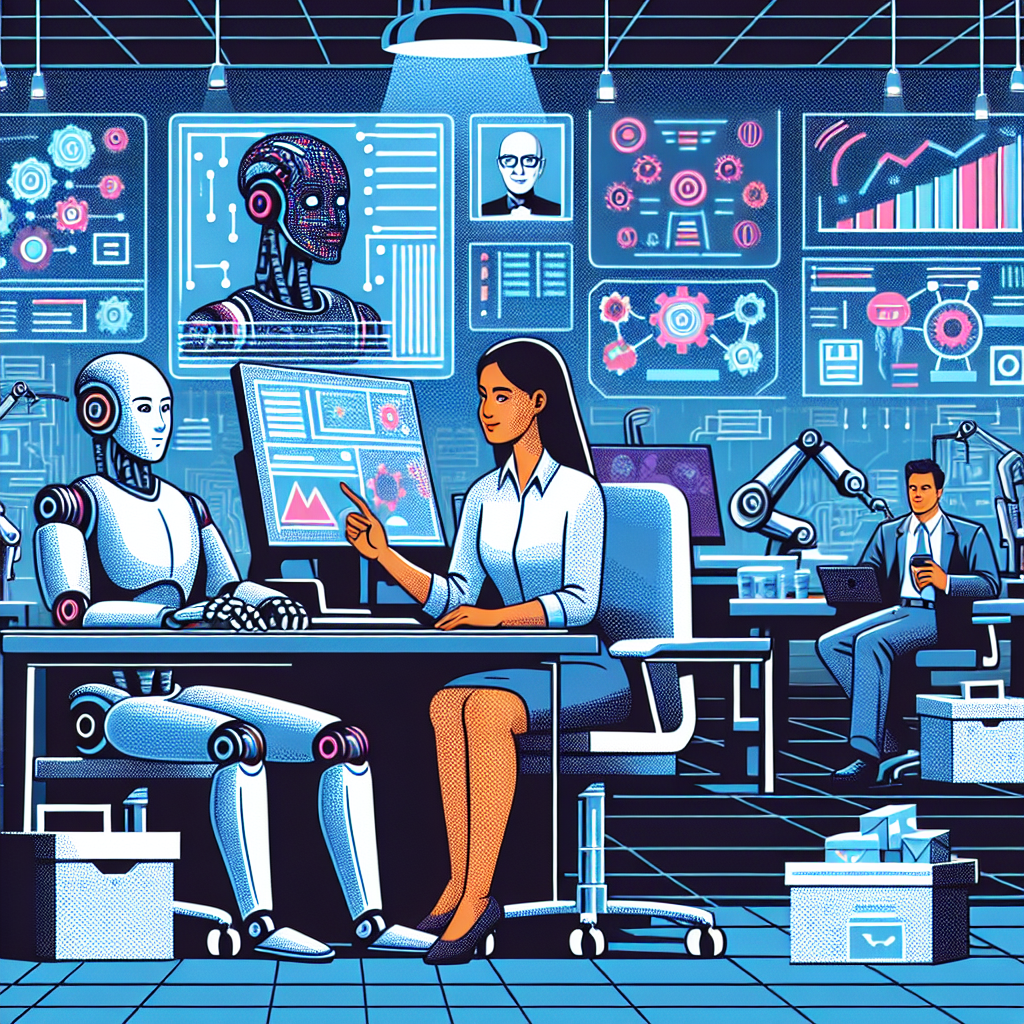The Future of Work: AI Consulting and Automation
In recent years, the integration of artificial intelligence (AI) and automation in various industries has been rapidly increasing. This trend is expected to continue in the future, as businesses look for ways to streamline processes, increase efficiency, and reduce costs. One area that is particularly being impacted by AI and automation is consulting.
AI consulting involves using artificial intelligence technologies to analyze data, generate insights, and provide recommendations. This can help businesses make more informed decisions, optimize their operations, and improve their overall performance. Automation, on the other hand, involves using robots and other technologies to perform repetitive tasks and free up human workers to focus on more strategic activities.
The combination of AI consulting and automation is expected to revolutionize the consulting industry in the coming years. Here are some key trends and developments that are shaping the future of work in this field:
1. Increased Efficiency and Productivity
One of the main benefits of AI consulting and automation is the increased efficiency and productivity that it can bring to businesses. By automating repetitive tasks and using AI to analyze data and generate insights, consulting firms can deliver faster, more accurate results to their clients. This can help businesses make decisions more quickly and stay ahead of their competitors.
2. Enhanced Decision-Making
AI consulting can help businesses make more informed decisions by analyzing large amounts of data and identifying patterns and trends that human consultants may not be able to see. This can help businesses identify new opportunities, mitigate risks, and optimize their operations. Automation can also help businesses implement these decisions more quickly and effectively.
3. Cost Savings
By automating repetitive tasks and using AI to streamline processes, consulting firms can reduce their costs and pass on the savings to their clients. This can make consulting services more affordable for businesses of all sizes, and help them achieve their goals more cost-effectively.
4. Improved Customer Experience
AI consulting and automation can also help consulting firms improve the customer experience by providing more personalized and timely services. By using AI to analyze customer data and preferences, consulting firms can tailor their recommendations to each client’s specific needs and deliver a more engaging and valuable experience.
5. New Business Models
The rise of AI consulting and automation is also leading to the emergence of new business models in the consulting industry. For example, some consulting firms are now offering subscription-based services that provide ongoing support and insights to their clients, rather than one-off projects. This can help businesses stay ahead of the curve and adapt to changing market conditions more effectively.
FAQs:
Q: How will AI consulting and automation impact the job market?
A: While AI consulting and automation may lead to some job displacement in the short term, they are also expected to create new opportunities for skilled workers in the long term. As businesses embrace these technologies, there will be a growing demand for workers who can design, implement, and manage AI systems and automation processes.
Q: Will AI consulting and automation replace human consultants?
A: While AI consulting and automation can augment the capabilities of human consultants, they are unlikely to replace them entirely. Human consultants bring a unique set of skills, such as creativity, empathy, and strategic thinking, that AI and automation cannot replicate. Instead, AI and automation will enable human consultants to focus on higher-level tasks and provide more value to their clients.
Q: What are the potential risks of AI consulting and automation?
A: One potential risk of AI consulting and automation is the loss of jobs for workers who perform repetitive tasks that can be automated. Another risk is the potential for bias in AI algorithms, which can lead to unfair or discriminatory outcomes. It is important for businesses to be aware of these risks and take steps to mitigate them by implementing ethical guidelines and transparency in their AI systems.
In conclusion, the future of work in consulting is likely to be shaped by the increasing integration of artificial intelligence and automation. These technologies offer numerous benefits, such as increased efficiency, enhanced decision-making, cost savings, improved customer experience, and new business models. While there are some risks associated with AI consulting and automation, businesses that embrace these technologies are likely to stay ahead of the curve and achieve greater success in the long term.

